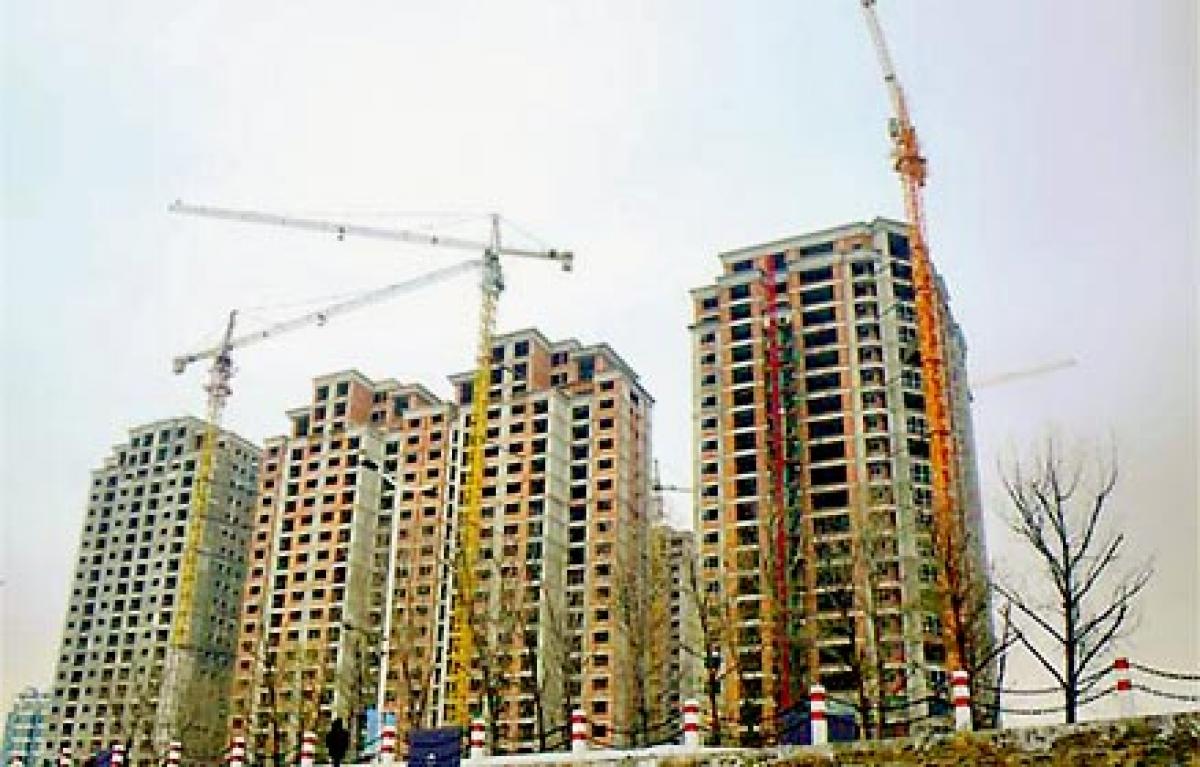Live
- JD-U criticises Pappu Yadav for receiving threatening calls
- INST scientists develop anti-counterfeiting ink to curb document duplication
- 62 dead in flash floods in eastern Spain
- India to face Malaysia in Hyderabad on November 18 for International Friendly
- Militants will get killed as long as they continue to infiltrate: Farooq Abdullah
- PM Modi, HM Shah, CM Yogi among top BJP bigwigs to hold over 170 poll rallies in Maharashtra
- AAP protests against FCI's slow procurement of paddy from Punjab
- Lakshmi Puja 2024: Complete Guide to Diwali Rituals for Prosperity and Good Fortune
- AP govt. appoints BR Naidu as new chairman of TTD
- Odisha CM announces Rs 6 lakh compensation for metro tunnel victims
Just In

x
Highlights
On Wednesday, Union Cabinet accepted twenty amendments suggested by the select committee of the Rajya Sabha on the Real Estate (Regulation and Development) Bill. This would pave way for setting up Real Estate Regulatory Authority (RERA) that provides a uniform regulatory environment to ensure speedy adjudication of disputes and orderly growth of the real estate sector.
On Wednesday, Union Cabinet accepted twenty amendments suggested by the select committee of the Rajya Sabha on the Real Estate (Regulation and Development) Bill. This would pave way for setting up Real Estate Regulatory Authority (RERA) that provides a uniform regulatory environment to ensure speedy adjudication of disputes and orderly growth of the real estate sector. The govt. says the Bill will restore the confidence of consumers in the sector by institutionalizing transparency and accountability in real estate and housing transactions.
This move is essential considering the opening up of FDI and also the REIT route of investment into this sector to boost the domestic real estate industry. Moreover, this sector has been laden with high debt, constant project delays and extremely unorganized - transferring these risks to the home buyers. This Bill would seek to protect the home buyers as well as help boost investment in realty. The Bill would be applicable for both residential and commercial real estate projects and establishes the RERA in states and UTs to regulate real estate transactions.
One of the major amendments is to have a deposit of 70 per cent of the sale proceeds by the builder, which includes the land cost, in an escrow account to meet the construction cost. This is a hike by 20 per cent from the earlier proposal of 50 per cent or less. Also accompanies with payment of interest to home buyers for any default or delays at the same rate they charge them i.e. the banker/financial institution from where funds are borrowed. This move is designed to arrest the perennial project delays. Builders are also liable for structural defects that arise from their construction for a period of five years.
The Bill also mandates for a formation of residents’ association within three months of the allotment of majority of units in a project. The other notable clarifications include the definition of the carpet area and usable spaces like kitchen and toilets. It also requires compulsorily disclose all registered projects, including details of the promoter, project, layout plan, land status, approvals, agreements along with details of real estate agents, contractors, architect, structural engineer etc.
The Bill also facilitates the establishment of fast track dispute resolution mechanisms for settlement of disputes through adjudicating officers and Appellate Tribunal. Though, civil courts jurisdiction is prohibited from taking up matters defined in the Bill, the aggrieved buyers additionally could approach consumer courts at the district level. The amendment has stipulated that the cases have to be disposed of within 60 days from the date of complaint. A provision has been created for the imprisonment of up to three years in case of promoters, up to one year for the real estate agents and buyers for violation of orders of the appellate tribunals or monetary penalties or both.
Another major amendment is in the way promoters could change the project plans. The promoters are barred from changing the plans and design of the project without the consent of the consumers. The Bill states that the regulatory authorities would promote a single-window system of clearance for real estate projects, which could reduce the delays. These authorities could also grade projects, the promoters and also the digitization of land records. These measures ensure stability and transparency while boosting domestic and foreign private investments thus achieving the govt.’s objective of ‘Housing for all’.
The Bill, however, doesn’t clarify if it applies on a retrospective nature which could lead to more confusion. Also, there is no mention of the sanctioning authorities in the Bill who are responsible for some of the delays the projects endure in terms of approvals on occupancy certificate, electricity and water connections, etc. Hopefully, this plays a role of a regulator as well as a developmental authority and not another approval authority creating further hurdles.
(The author is a practising financial planner and could be reached
K Naresh Kumar

Next Story
More Stories
ADVERTISEMENT
© 2024 Hyderabad Media House Limited/The Hans India. All rights reserved. Powered by hocalwire.com







